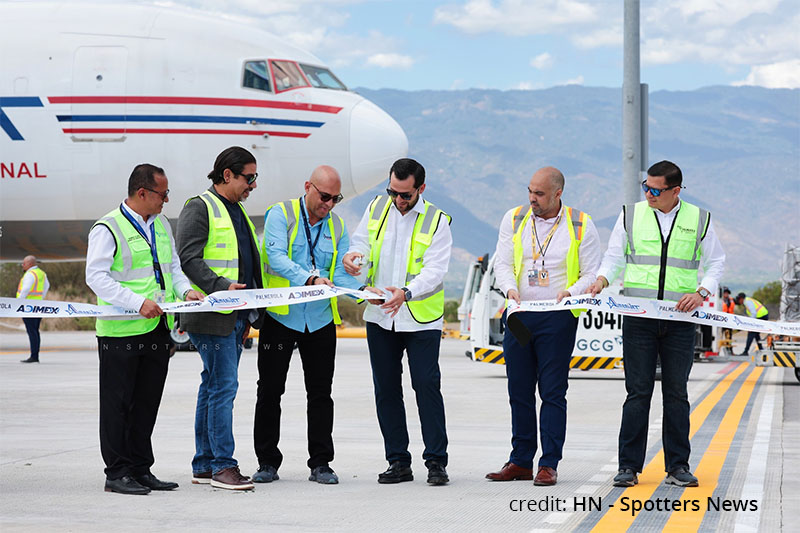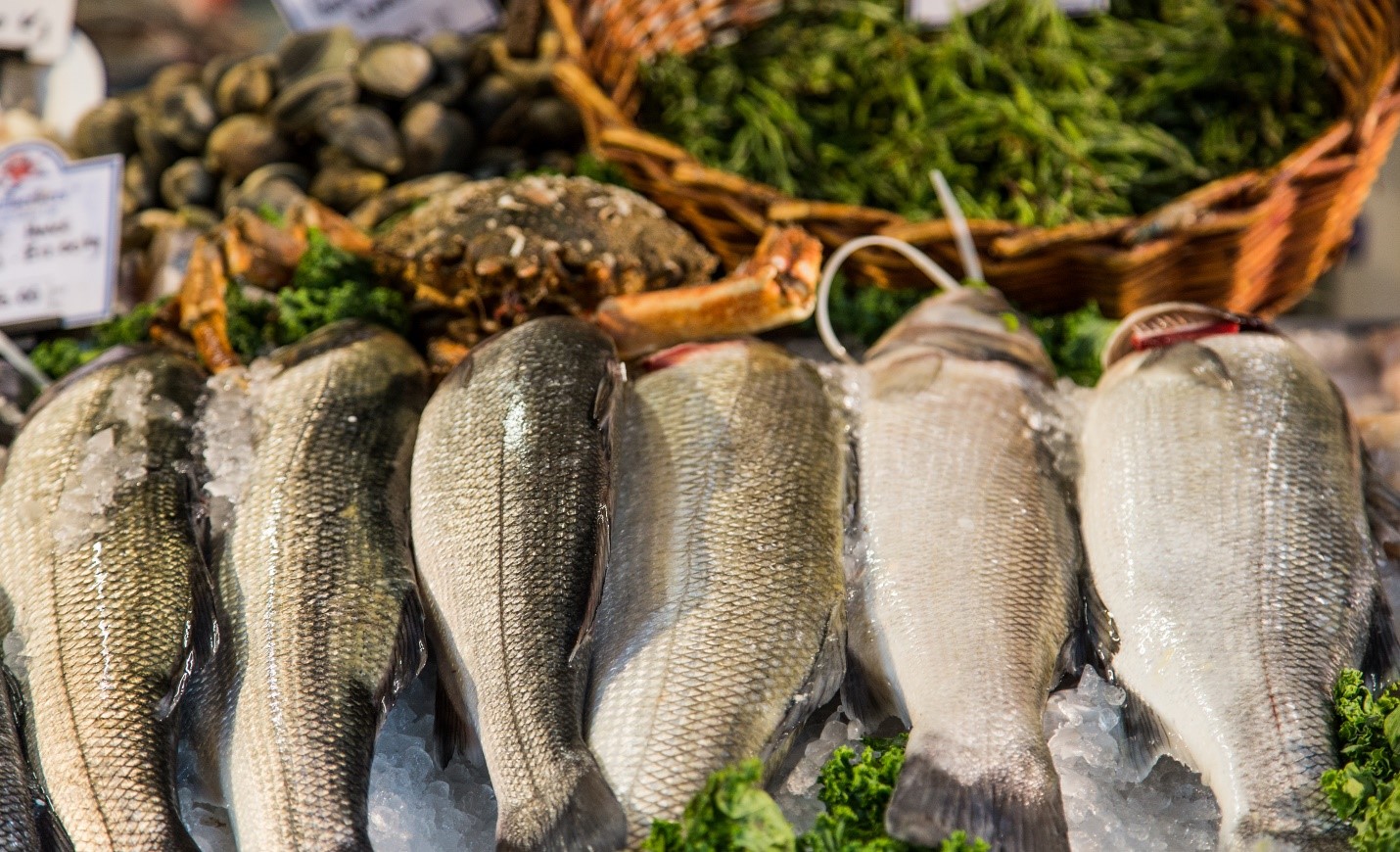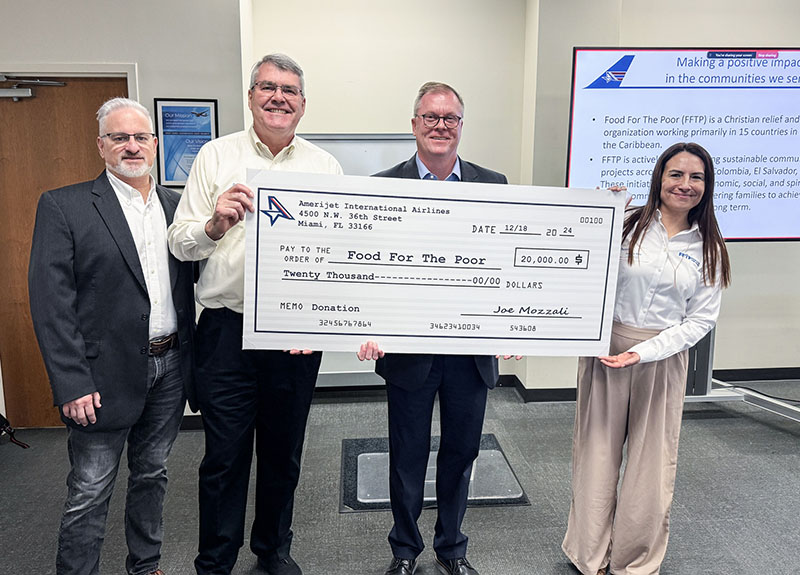Importers of Fresh Fish can rely on Amerijet’s experience to deliver their shipments
DATE: 10/05/17
Importing fresh fish is big business. There are a lot of fisheries and fish packing plants that export fresh, frozen and live seafood from Central America, the Caribbean and South America’s coastal regions.
It’s no surprise that Miami International Airport is a key U.S. port of entry for these seafood shipments, bringing in products to be sold in grocery stores, fish markets and restaurants for consumption in the U.S. and beyond.
The same is true in reverse: many Caribbean nations rely on imports for food consumption, and seafood imports make up a large share of Caribbean seafood consumption.
That means both in the U.S. and in the Caribbean, there are fish importers and wholesalers striving to distribute the best quality seafood in the global fish market. Their market includes those in need of wholesale fish and those looking to buy fish locally at a retail price.
And one of the key factors to their success is the ability to deliver those products on a very quick time frame from the moment when the fish are discharged from their vessels to the delivery confirmation.
Failure to deliver these products on time can devastate their bottom line.
The bottom line is these companies need a steady partner experienced in shipping all manner of fresh fish by air. Amerijet has four decades of experience successfully meeting all your needs when it comes to transporting fish.
What’s required of fish importers?
Many of the seafood delicacies served in U.S. grocery stores and restaurants come directly from the Caribbean – from farm-raised tilapia from Belize to lobsters imported from Haiti, or crabmeat from Venezuela and Mexico.
The Caribbean, Central and South America provide some of the best fish that consumers enjoy, and their products are exported to the U.S. by air every day. Trinidad, Suriname, Guyana, Panama, and Merida all import products including trout, grouper, snapper, tuna, tilapia, and shrimp from their local fish packing plants.
There are several key aspects to the safe shipping of their products. The most critical, of course, is the refrigeration process while the fish is being transported. Proper handling prior to shipment is crucial for guaranteeing the arrival of the product in good condition.
And that starts with proper packing before the shipment is ready. In order to keep the fish fresh, packaging needs to be done quickly and efficiently to avoid the risk of exposing them to higher temperatures.
This is where a retailer of fish needs the experience that Amerijet provides. If you need to export fresh fish to the states, it’s important to be sure you follow some basic guidelines, including the need to:
• Pre-chill your fresh seafood products prior to packaging them. Prechilling the container and other packaging material allows you to maintain a low temperature during transit, and it prevents the products from absorbing package heat.
• Keep all fish products under refrigeration until delivery to the air cargo carrier.
Most importantly, any supplier shipping temperature-controlled freight internationally needs a reliable carrier as their business partner to ensure the perishable cargo remains at the proper appropriate temperature during ground handling and while in storage.
Our experienced team has spent years transporting fish products and keeping them fresh for their next destination. Since Miami is a leading hub and transfer center for perishable imports and exports worldwide, Amerijet offers comprehensive export and import facilities at Miami International Airport.
The Amerijet custom-built cooling facility was designed to maintain the cool chain integrity of perishables during the transportation process, which can include handling great volumes of fish.
Proper storage, handling and transfers all need to be done by experienced professionals. As the retailer, you need to know what kind of handling procedures are in place for airport-to-airport services to ensure product quality and cool-chain integrity. So the first place to start is to guarantee you have a relationship with an air cargo service you can trust.
The bottom line is that most companies aren’t properly equipped to handle perishable shipments, and you need a perishable shipping company that offers temperature-controlled transportation to ensure your perishables arrive to their destination in fresh condition.
Since your export perishables need to arrive in good condition at the proper temperature, it’s important to also ask the forwarder about their last-mile delivery capabilities at destination. Amerijet’s international offices closely coordinate with its forwarder customers to receive the perishable shipment immediately following its off-loading and clearance.
Amerijet has more than 40 years of experience in handling and transporting perishables, including all kinds of fresh fish, and we provide all-cargo scheduled and charter air service to destinations in the Caribbean, Mexico, Central America and South America.
What federal rules must exporters follow?
While it’s very important to package fish in the right manner, following federal guidelines is also critical. Perishable shipping requires your products to be packed properly and handled by the right shipping company. The Amerijet team is fully versed in all regulations governing the import and export of fish products, and can ensure that your shipments are fully in compliance.
The importation of seafood is governed by the U.S. Food and Drug Administration, the National Marine Fisheries Service and the Fish and Wildlife Services. There are plenty of rules and regulations the importers and exporters need to scrupulously follow – tuna and anchovies, for example, are subject to quotas, and the FWS restricts the quantity of caviar that can be brought into the U.S. Exceeding the quantity means the goods can be subject to seizure, and there also are restrictions on commercial importations.
Proper documentation is essential. The shipper needs to be aware of labeling, documentation and insurance requirements for both the country of origin, the country/region of destination and the air cargo carrier. All perishable shipments need to be labeled properly. The exact labels required will depend on where you’re shipping the perishables to, if there is dry ice inside and other factors that your shipping agent can explain to you.
These federal regulations often change, and the best source of up-to-date information is a reliable air carrier that handles fish and seafood on a regular basis.
For example, when packaging fish, it’s crucial to use insulation. You need to make sure your use enough insulation to withstand the transportation process, and if you’re not sure what type of packaging to use, an Amerijet customer service representative can answer all your shipping questions.
How Amerijet makes a difference
Amerijet has more than 40 years of experience in:
• managing perishable shipments
• offering assistance with documentation compliance
• providing cargo insurance
• offering online and EDI booking
• Providing cold chain management capabilities that include food-grade pre-cooling, cooling and freezer
facilities for freight storage at all major transit points.
It’s a tall order to maintain the cold chain across borders when it comes to importing and exporting perishables. At Miami International Airport, Amerijet’s Exports and Imports air cargo handling facilities feature a custom-built 10,300 square-foot food-grade perishable handling center with multiple pre-cooling systems.
Storage space is subdivided into climate-controlled chambers that include refrigerated, frozen and chilled storage to ensure the proper handling of perishables.
In addition to airport-to-airport service, Amerijet provides LTL and FTL trucking service throughout the U.S.
Amerijet also provides automated shipment information – a major advantage in cold chain transportation, since it allows your company to pinpoint where the shipment is in the transit process.
Our air freight services get your shipment to its destination quickly and in fresh condition. Learn more about perishable shipping and our other shipping services by visiting www.amerijet.com today.





